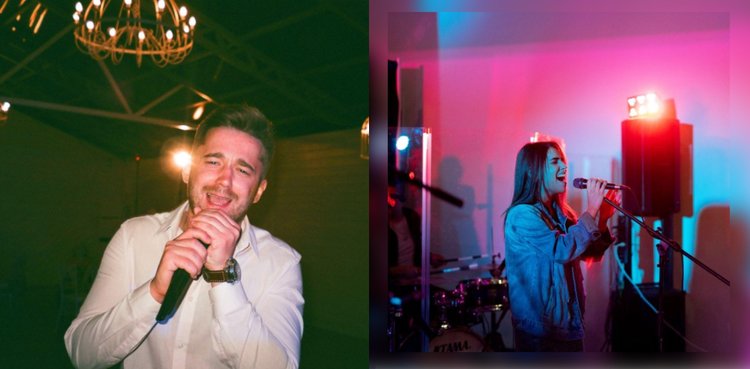In the heart of Seoul’s most glamorous district lies a refuge. A place where the worries of boardrooms, clients, deadlines, and relentless commutes melt away beneath dim lights and familiar melodies. That place is 강남가라오케 (Gangnam Karaoke) — but not in the way you might expect.
For many Westerners, karaoke conjures images of college bars and raucous singing. But in Korea — especially in Gangnam, the epicenter of business and luxury — karaoke has evolved into something far more therapeutic. For professionals grappling with long work hours, hierarchical office politics, and emotional restraint, Gangnam’s premium karaoke lounges offer more than music.
They offer serenity.
In this article, we explore why 강남가라오케 has become the go-to stress reliever for Korean professionals — and how it combines emotional release, safe social bonding, and luxury service to deliver calm in the chaos.
1. Korean Work Culture: Stress Without an Off Switch
To understand the need for escape, you first have to understand the intensity of Korean professional life.
Many workers in Korea endure:
- Long hours (often 10–12 per day)
- Strict hierarchical systems (선후배 culture)
- High expectations for perfection
- Low tolerance for emotional expression at work
Despite recent labor reforms, Korean work culture remains pressure-packed, especially in fields like finance, tech, law, and media. Most employees, especially in major corporations (대기업), report physical and mental fatigue, yet lack safe, socially acceptable spaces to decompress.
That’s where 강남가라오케 comes in.
2. Emotional Expression Without Consequences
Koreans are often taught to suppress negative emotions in public or professional settings. Anger, sadness, frustration — these must be buried to maintain harmony (정).
But music has always served as an emotional outlet in Korean culture. Songs of longing, loss, joy, and hope are woven into the national identity.
At 강남가라오케, professionals can:
- Sing heartbreak songs after a breakup
- Release anger through rock anthems
- Celebrate quietly with soft ballads
- Cry — and not be judged for it
These rooms become emotional safety zones, allowing people to vent, reflect, and re-center. For many, it’s more effective than therapy — because it’s familiar, safe, and tied to tradition.
3. Luxury and Comfort That Soothe the Senses
Premium karaoke rooms in Gangnam are nothing like the coin-noraebangs found in subway stations.
They offer:
- Elegant, soundproof rooms with velvet sofas and mood lighting
- Gourmet menus and premium drinks (including rare whiskeys and craft cocktails)
- Discreet, well-trained staff who understand subtle emotional cues
- High-quality sound systems that make even off-key singers sound good
This kind of sensory environment reduces tension immediately. From the smell of the room (often lightly perfumed), to the soft lighting and curated playlists, everything is designed to make guests feel at peace.
It’s like stepping into a private spa for the soul — except here, the release comes through music, not massage.
4. The Therapeutic Power of Singing
Numerous scientific studies have confirmed the stress-relieving benefits of singing:
- Releases endorphins and dopamine
- Lowers cortisol (stress hormone)
- Regulates breathing and heart rate
- Enhances emotional processing
In Korean culture, where direct confrontation is rare and emotional discussion is often avoided, singing becomes a culturally accepted form of catharsis.
Professionals can’t tell their boss what they really feel — but they can sing “소주 한잔 (A Glass of Soju)” and let the lyrics speak for them.
5. Social Healing: The Group Dynamic
Karaoke in Korea is rarely a solo activity. It’s typically done with colleagues, friends, or trusted companions. In Gangnam’s premium lounges, small groups often gather to celebrate or heal together.
This setting fosters:
- Group bonding outside of office hierarchy
- Shared vulnerability through music
- Supportive laughter and camaraderie
- An unspoken agreement of discretion
In these spaces, the manager might sing a silly song. The intern might impress with a soulful ballad. Rank fades, and human connection replaces formality.
These shared experiences build stronger relationships, which in turn reduce stress back in the workplace.
6. Privacy as a Pillar of Trust
One of the key reasons professionals prefer 강남가라오케 is the high level of privacy:
- No strangers watching
- No photos or videos allowed
- Rooms are soundproof
- Entrance and exit can be discreet
This level of confidentiality is essential. For an executive, singing a breakup song or shedding a tear in public might harm their image. But in a private karaoke room, they are free to be human.
Some venues even offer VIP-only rooms with private elevators and dedicated security, catering to high-profile guests.
7. Gentle Companionship: Hostesses Who Understand
In many 강남가라오케 venues, especially high-end ones, female hospitality workers (hostesses) are present to assist with service, conversation, and emotional support.
These women are not entertainers in the Western sense — they are:
- Trained in etiquette and discretion
- Emotionally intelligent and responsive
- Skilled at creating a warm, judgment-free atmosphere
- Fluent in light conversation and cultural nuance
Their presence helps ease loneliness, especially for guests who may live alone or work long hours without meaningful interaction. For some professionals, even light-hearted banter or a simple duet can mean emotional nourishment.
8. A Culturally Accepted Form of Release
Unlike drinking alone or seeing a therapist (still stigmatized in some circles), karaoke is a normalized, respected part of Korean nightlife. There’s no shame in visiting 강남가라오케. In fact, it’s often seen as:
- A sign of success (premium venues aren’t cheap)
- A responsible way to handle stress
- A team-building tool for corporate harmony
This means professionals don’t have to justify their visit — they can just go, sing, and feel better.
9. Returning to the World Recharged
The effects of a night at 강남가라오케 linger long after the last note fades.
Professionals report:
- Better sleep after singing
- Improved mood the next day
- Renewed clarity on personal or work issues
- Increased energy and emotional resilience
It’s no surprise that many have made karaoke a weekly ritual. Some even visit the same room, with the same friends, as a kind of emotional routine — a place where their true selves are welcome, seen, and cared for.
10. Beyond Stress Relief: A Space for Transformation
Some visitors don’t just find stress relief — they find transformation.
- A tired manager realizes he still loves music.
- A lonely junior discovers confidence through applause.
- A couple in quiet conflict finds common ground in a duet.
- A woman fighting burnout cries freely for the first time in months.
These moments don’t fix everything. But they help. And sometimes, a little help is all we need to carry on.
Final Thoughts: The Serenity of Song
In a city that never sleeps, where ambition drives people to exhaustion and pride keeps them silent, 강남가라오케 offers sanctuary.
Not escape — healing.
Not distraction — connection.
Not noise — serenity.
For Korean professionals navigating one of the world’s most demanding work cultures, these softly lit rooms filled with song are not luxuries. They are lifelines.
So the next time you see someone walking into a nondescript building in Gangnam late at night, don’t assume they’re chasing fun.
They might just be chasing peace — one song at a time.




